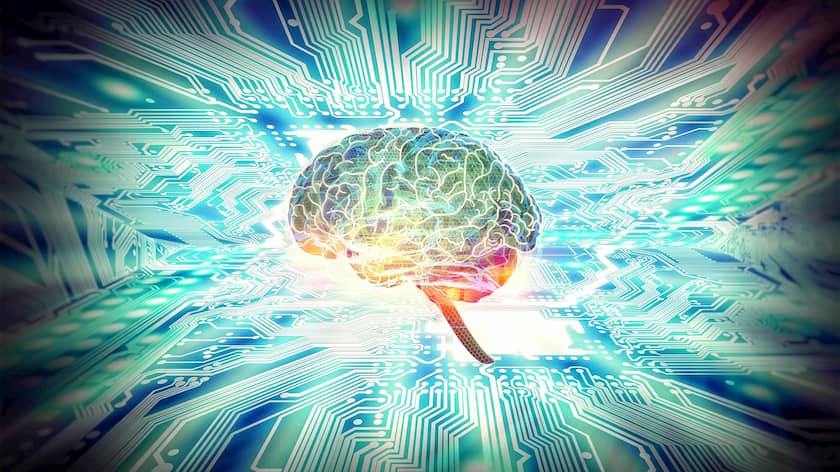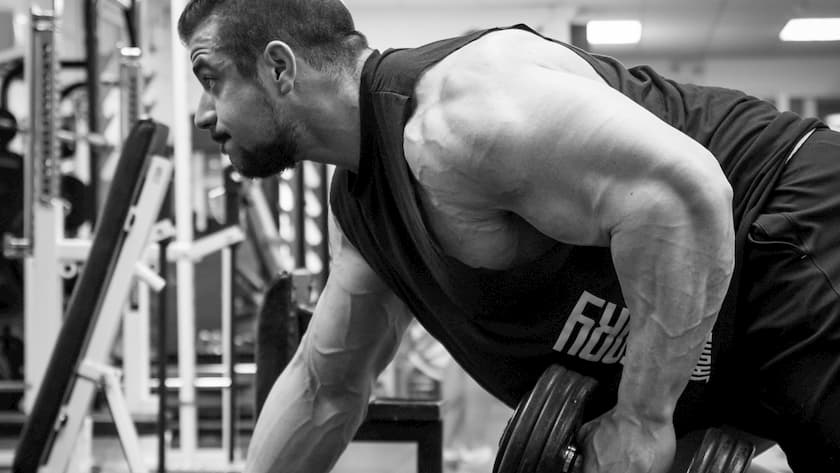We all know muscles aren’t built by vegging out on the couch or by spending more time in the kitchen than at the gym. Also, most people probably don’t associate vegetables with muscle building and strengthening, but it’s true. This article reviews 10 vegetables you can eat to enhance muscle growth and strength.
10 Vegetables to Build Muscle and Strength
1. Kale
Not only is kale affordable, but it is also a low-calorie vegetable rich in calcium wit roughly 101 mg in 1 cup (67 g). Calcium is an important nutrient for maintaining strong bones. But, more importantly, calcium is needed for muscles to move and for nerves to carry signals between the brain and the rest of the body.
According to the National Institutes of Health, recommended daily calcium amounts for adults 19-50 years old is 1,000 mg and can be safely consumed up to 2,500 mg. Excessive calcium intake, above the limit, may interfere with zinc and iron absorption in the body. [1]
Because calcium regulates muscle contractions and strengthens bone foundations, weight lifters consume it in high amounts to resist injury during physical exercise. [2]
Kale is a great start to get daily calcium amounts, especially since many weight lifters avoid other calcium sources like milk. This is because they are concerned that milk in calcium-beneficial amounts will pack on body fat.
2. Broccoli
Broccoli contains indoles, a phytochemical that metabolizes excess estrogen into safer forms which inhibit prostate cancer cell proliferation. Broccoli is also great for lowering cholesterol, which prevents cardiovascular disease and provides cardiovascular support.
Calcium and vitamin D are also essential nutrients found in broccoli, with 70 mg and 922 IU per serving (148 g), respectively. These nutrients enhance skeletal muscle strength and performance.
Four volunteers deficient in vitamin D were supplemented with vitamin D (60,000 IU/month) and 1 g elemental calcium per day. Research reveals 6 months supplementation led to enhanced muscle strength and physical performance. [3]
Mushrooms are a vegetable also high in vitamin D, so steam broccoli and throw in some mushrooms for a healthy meal that aids in healthy muscle development and contractions.
3. Beets
Beets are high in potassium, magnesium, fiber, and many vitamins. Beets also add the extra kick you need during weight lifting and aerobic training, due to its sugar content.
Beetroot juice, in particular, is clinically proven to boost stamina by allowing users to exercise 16% longer. [4] Beetroot juice reduces oxygen uptake “to an extent that cannot be achieved by any other known means, including training,” says one scientist.
A research team came to this conclusion by conducting a clinical study involving 12 men. Before they were put under a series of cycling tests, each man received 140 ml organic beetroot juice or a placebo for 6 days. Time-trial performance and power output improved in athletes who consumed beets. [5]
4. Potatoes
Glycogen levels become depleted during intense workouts. Carbohydrates in potatoes are excellent sources to refuel depleted glycogen storage. [6]
Not only are potatoes great energy sources, but they are also excellent sources of fiber. Eating enough fiber increases satiety and keeps your waistline in check to ensure visible muscular growth, and not fat. [6]
Potatoes are also great sources of vitamin B6, a substance required for more than 100 enzymatic reactions. Protein and amino acid building blocks need vitamin B6 for their synthesis. Approximately 21 % of the daily value of vitamin B6 comes from a cup of baked potato. [7]
5. Garlic
Garlic is a great way to increase testosterone levels when supplemented with protein.
One animal study indicates 25% protein diets with .8 g/100 garlic powder increased testosterone. [8]
Though you might not be getting as much testosterone as the clinical study, any production is better than none.
6. Beans
Beans are great meat alternatives due to high protein content, as high as 15.2 g per cup with black beans. Eating beans supplies much-needed nutrients to repair muscles after a workout, and you won’t have to worry about high levels of saturated and trans fat that you would typically get in equal amounts of animal-based protein.
Beans are also excellent iron sources, and iron is considered “one of the most critical minerals with implications for sports performance.” Iron is a component of hemoglobin, myoglobin, and other enzymes in the muscles cells responsible for metabolizing and transporting oxygen during endurance exercises. [10]
Your muscles can grow and repair by eating beans. So eat them plain, in a salad, or throw them in some tacos.
7. Avocado
Considered a vegetable by the USDA, avocados are excellent protein sources, roughly 3-4 g per cup, adding a variety to your protein consumption. Not only do avocados enhance muscle recovery, making your muscles bigger, but they also offer 10 g dietary fiber, increasing satiety. [11]
Avocados are also rich in phytonutrients which combat heart disease and cancers. Additionally, avocado consumption leads to a healthy heart, as it is rich in monounsaturated fats that lower blood pressure. [12]
Eat an avocado by itself post-workout to optimize muscle growth, or add it in different foods like salads or burgers for extra protein.
8. Cauliflower
Cauliflowers are important due to omega-3 fatty acid content. Omega-3 fatty acids are beneficial to muscle growth.
In one study, 16 healthy older adults were given either omega-3 fatty acids or a placebo for 8 weeks. Researchers evaluated muscle protein synthesis before and after supplementation and discovered the group supplemented with omega-3 fatty acids experienced an increase in muscle protein synthesis. [13]
There is also 2 g dietary fiber per 100 g cauliflower, which increases satiety, combating excessive calorie and fat intake that could cover up your shredded muscle growth.
9. Green Peppers
Green peppers are yet another great vitamin C source that improves healthy muscle contraction. There is about 532 mg of vitamin C per 1 ounce of green pepper.
Also, vitamin C reduces muscle soreness, damage, and function from exercise. In one clinical study, 18 men were given either 3 g/day of vitamin C or a placebo 2 weeks prior and 4 days after performing 70 eccentric elbow extensions with their non-dominant arm. Both groups experienced muscle soreness, but the vitamin C group experienced significantly less. [14]
Green peppers are low in calories and can be eaten in various ways. Mix up your plate and maybe even stuff green peppers with other vegetables for healthier, stronger muscles.
10. Butternut Squash
Butternut squash is another starchy vegetable to consume post-workout because of its carbohydrate content, which replenishes depleted muscle glycogen storage.
Carbohydrates serve as the body’s main energy source. Medical authorities note it is important to consume carbohydrates as soon as you finish working out because “delaying the ingestion of a carbohydrate supplement post-exercise will result in a reduced rate of muscle glycogen storage.” [15]
And, while still preliminary, animal studies are showing vitamin A is important for protein turnover, development, and growth. Being deficient in vitamin A may cause a shift from fatty acids to protein catabolism as an energy source, resulting in muscle breakdown. [16]
Sources:
[1] “Dietary Supplement Fact Sheet: Calcium.” National Institutes of Health. Available from: http://ods.od.nih.gov/factsheets/Calcium-QuickFacts/
[2] A G Szent-Gyorgyi. “Calcium Regulation of muscle contraction.” Biophysical Journal. 1975 July; 15(7): 707-723. Available from: http://www.ncbi.nlm.nih.gov/pmc/articles/PMC1334730/
[3] Gupta R. et al. “Effect of cholecalciferol and calcium supplementation on muscle strength and energy metabolism in vitamin D-deficient Asian Indians: a randomized, controlled trial.” Clin Endocrinol (oxf). 2012 Oct;73(4):445-51. Doi: 10.1111/j.1365-2265.2010.03816.x. Available from: http://www.ncbi.nlm.nih.gov/pubmed/20455886
[4] “Beetroot juice boosts stamina, new study shows.” University of Exeter. 6 August 2009. Available from: http://sshs.exeter.ac.uk/news/research/title_37371_en.html
[5] Naomi M. Cermak, Martin J. Gibala, and Luc J.C. van Loon. “Nitrate Supplementation’s Improvement of 10km Time-Trial Performance in Trained Cyclists.” Internation Journal of Sport Nutrition and Exercise Metabolism, 2012, 22, 64-71. Available from: http://www.beet-it.co.nz/uploads/3/0/9/9/3099302/cermak_2012_nitrate_supplementation_s_improvement.pdf
[6] “5 Health Benefits of Potatoes.” Available from: http://www.discoveryhealthjournal.com/2011/08/5-health-benefits-of-potatoes.html
[7] Available from: http://www.whfoods.com/genpage.php?tname=foodspice&dbid=48
[8] Oi Y. et al. “Garlic supplementation increases testicular testosterone and decreases plasma corticosterone in rats fed a high protein diet.”J Nutr 2001 Aug: 131(8):2150-6. Available from: http://www.ncbi.nlm.nih.gov/pubmed/11481410
[9] Bhasin S. et al. “Testosterone replacement increases fat-free mass and muscle size in hypogonadal men.” J Clin Endocrinol Metab. 1997 Feb;82(2):407-13. Available from: http://www.ncbi.nlm.nih.gov/pubmed/9024227
[10] Melvin H. Williams. “Dietary Supplements and Sports Performance: Minerals.” Journal of the International Society of Sports Nutrition 2005, 2:43-49. Doi: doi:10.1186/1550-2783-2-1-43http://www.jissn.com/content/2/1/43
[11] “Eating Avocados to Gain Muscle and Lose Weight.” April 7, 2011. Available from: http://www.examiner.com/article/eating-avocados-to-gain-muscle-and-lose-weight
[12] PF Louis. “Ten delicious health benefits of eating more avocado.” April 14, 2013. Available from: http://www.naturalnews.com/040067_avocado_cancer_prevention_superfood.html
[13] Smith GI et al. “Dietary omega-3 fatty acid supplementation increases the rate of muscle protein synthesis in older adults: a randomized controlled trial.” Am J Clin Nutr. 2011 Feb;93(2):402-12. Doi: 10.3945/ajcn.110.005611. Epub 2010 Dec 15. Available from: http://www.ncbi.nlm.nih.gov/pubmed/21159787
[14] Bryer SC, Goldfarb AH. “Effect of high dose vitamin C supplementation on muscle soreness, damage, function, and oxidative stress to eccentric exercise.” Int. J. Sport Nutr Exerc Metab. 2006 Jun;16(3):270-80. Available from: http://www.ncbi.nlm.nih.gov/pubmed/16948483
[15] Ivy JL et al. “Muscle glycogen synthesis after exercise: effect of time of carbohydrate ingestion.” J. Appl. Physiol. 1988 Apr;64(4):1480-5. Available from: http://www.ncbi.nlm.nih.gov/pubmed/3132449
[16] Esteban-Pretel G et al. “Vitamin A deficiency increases protein catabolism and induces urea cycle enzymes in rats.” J Nutr. 2010 Apr;140(4):792-8. Doi: 10.3945/jn.109.119388. Epub 2010 Feb 24. Available from: http://www.ncbi.nlm.nih.gov/pubmed/20181784




Leave a comment
All comments are moderated before being published.
This site is protected by hCaptcha and the hCaptcha Privacy Policy and Terms of Service apply.